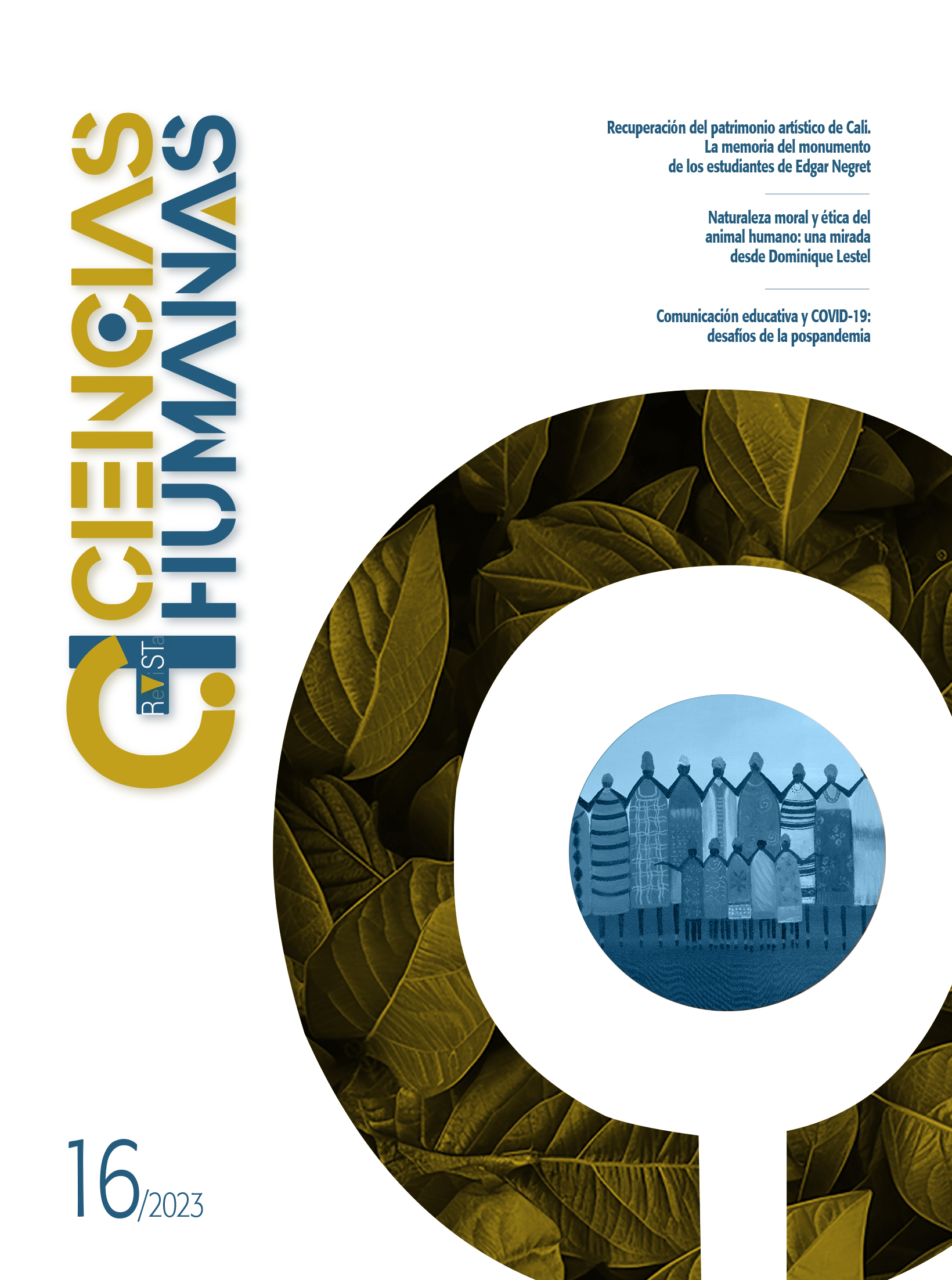The Revista Ciencias Humanas provides open and immediate access to its content, based on the principle of offering the public free access to research to aid in the greater global exchange of knowledge.
Except as otherwise stated, the content of this journal is licensed under a Creative Commons Attribution-NonCommercial-NoDerivatives 4.0 International (CC BY-NC-ND 4.0) license available at http://creativecommons.org/licenses/by-nc-nd/4.0/.
- Attribution. You must give appropriate credit, provide a link to the license, and indicate if changes have been made. You may do so in any reasonable manner, but not in a way that suggests that the licensor endorses you or your use.
- NonCommercial. You may not use the material for commercial purposes.
- NoDerivatives. If you remix, transform, or build upon the material, you may not distribute the modified material.
- No Additional Restrictions. You may not apply legal terms or technological measures that legally restrict others from doing anything the license permits.
Abstract
From the ancients to the moderns, concerning philosophers, the problem of ethics and morality has been assumed as a construct of human reason and reason alone, without considering the biological condition embodied by man himself. Based on Dominique Lestel's text "The Animal Origins of Culture" (2001), I will try to show that the ethical and moral constructs of human behavior are authentic expressions of an animal species with a particular genetic affinity that are expressed in specific events and situations of its social world, that reasons of institutional normative order do not mediate the basis of ethical and moral behavior, and that human morality and ethics is proper to our animality and not to culturally human order.
Keywords:
References
De Waal, F. (1992). De la réconciliation chez les primates. Flammarion.
De Waal, F. (1997). Le Bon Singe : Les bases naturelles de la morale. Fayard.
De Waal, F. (2001). Quand les singes prennent le thé. Fayard.
De Waal, F. (2004). L’émotion morale. Sciences et avenir HS 139.
De Waal, F. (1999). Cultural primatology comes of age. Nature 399 : 635-636.
De Waal & M.L. Berger 2000. Payment for labour in monkeys. Nature 404 : 563.
Kant, I. (2005). Metafísica de las costumbres. Cuarta ed. Tecnos.
Lestel, D. (2001). Les orígines animales de la culture. Flammarion.
Lestel, D. (2004). L’animal singulier. Seuil.
Rubia, F. (2008). La conducta moral de primates humanos y no humanos. Tomado de https://www.tendencias21.es/neurociencias/La-conducta-moral-de-primates-humanos-y-no-humanos_a4.html
Zuckerman, S. (1932). The social life of monkeys and apes. Routledge. Taylor & francis group.








